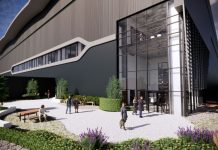According to Savills latest Life Sciences: Trends & Outlook Report, Cambridge saw £1.21 billion of life science related capital raised by companies headquartered in the UK in 2020, ranking 11th globally for venture capital (VC) funding (excluding the US).
Over the past five years mergers & acquisitions, private equity and VC has amounted to £15.7 billion, yet despite the growing weight of money and considerable demand from life science occupiers, take-up of readily available laboratory stock declined by as much as 77% in 2020 due to a chronic lack of supply. In fact, Savills figures show that the current vacancy rate for lab space in Cambridge is virtually zero.
Consequently, newly refurbished laboratory accommodation at the Newnham Building at Chesterford Research Park was fully let prior to completion. Before works finished there in Q4 2020, deals had already been done to firms including Microbiotica, Isomerase and Oncologica, with further space also under offer elsewhere on the park. As a result of limited availability, Savills has also seen life science occupiers turn to mid-tech industrial units, with schemes such as XLB and Royal London’s Enterprise at Cambridge Research Park and Salmon Harvester’s Cambridge South almost fully let to occupiers including Grifols, Oval Medical and Biochrom.
Looking ahead, 2021 has already seen considerable capital raised in the region which, in January alone, is 14% above the total for the whole of 2020. Nevertheless, in order for this to translate into future real estate transactions the city must see further development. At present, there is circa 134,000 sq ft (12,449 sq m) of laboratory space undergoing significant refurbishment works to provide fitted lab space due for delivery in 2021 at both Chesterford Research Park and Granta Park. However, there is currently nothing new like this under construction.
William Clarke, head of the commercial team at Savills Cambridge, comments: “In order for Cambridge to retain its world renowned status as a key global life science hub, we must see more development of suitable R&D and lab space. The amount of capital being invested into the sector reflects the growing demand from life science occupiers and at present we simply don’t have the supply to cater to these requirements. With this in mind, we urge both developers and investors to consider building speculatively given the strength of Cambridge’s market fundamentals.”




















